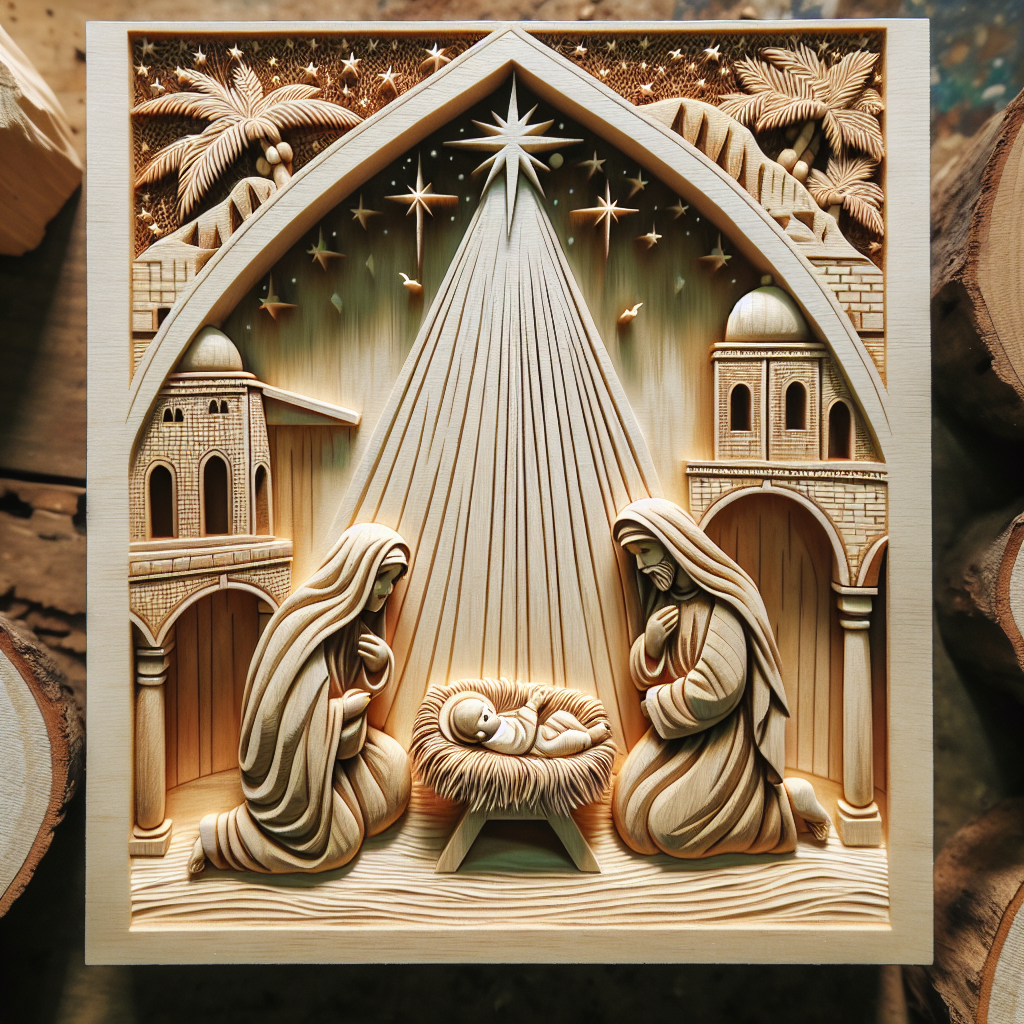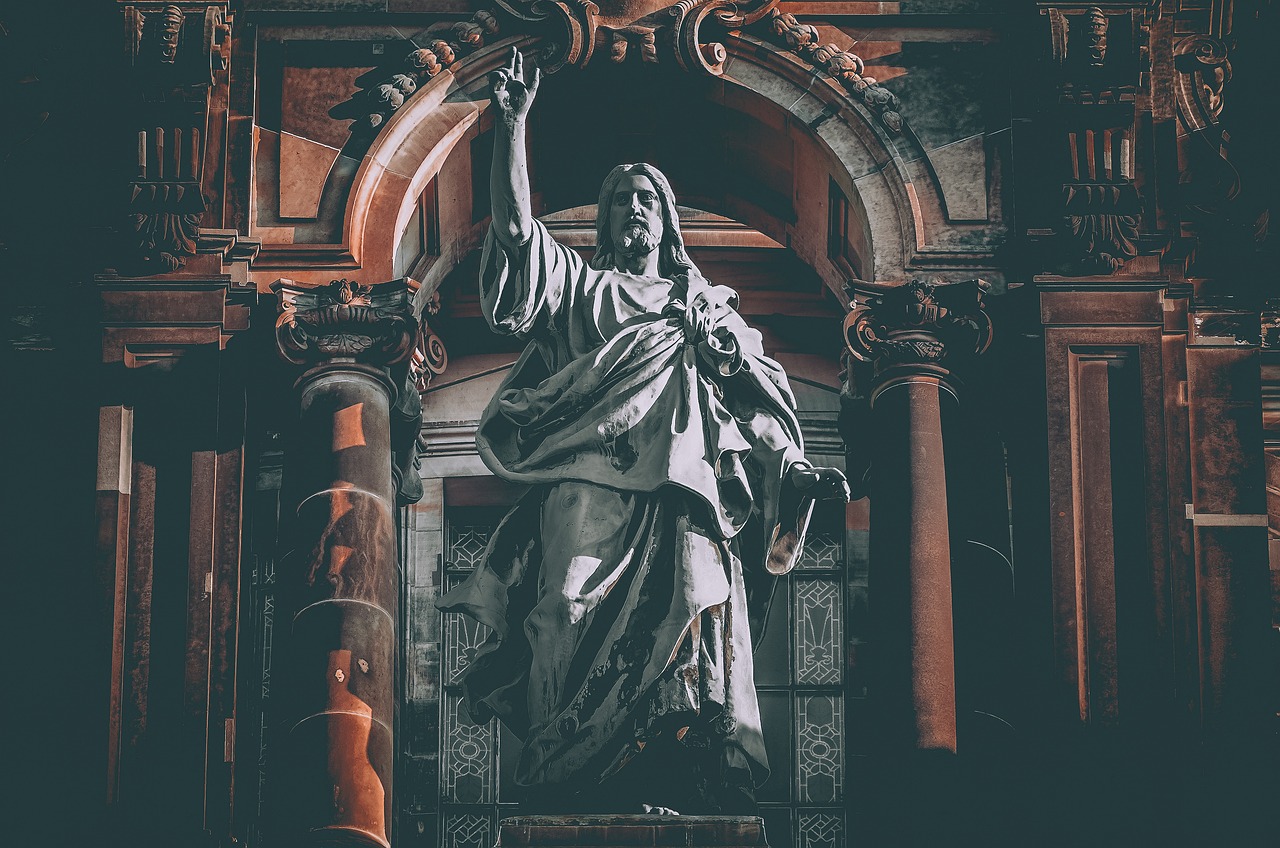When it comes to Christmas, have you ever wondered what the Bible actually has to say about this festive season? We all know the joy of exchanging gifts, the delight of decorating our homes, and the warmth of spending time with loved ones, but what about the religious perspective? In this article, we will explore the scriptures and discover what the Bible truly reveals about the significance of Christmas. Get ready to embark on a journey of understanding and uncover the true meaning behind this cherished celebration.
Table of Contents
The Origin of Christmas
Pagan Roots
Christmas has a rich and diverse history, and its origins can be traced back to ancient pagan celebrations. Pagan civilizations such as the Romans and the Celts observed various winter festivals, often centered around the winter solstice. These celebrations were a way to mark the changing of the seasons and to bring hope and light during the darkest time of the year. Elements such as feasting, gift-giving, and the decoration of homes with greenery were common during these festivities.
Christian Adaptation
The Christian adaptation of Christmas began in the early centuries of the Church. As Christianity spread throughout the Roman Empire, missionaries found it challenging to convince pagans to abandon their winter celebrations. To make the transition easier, Christian leaders decided to adopt and transform these existing festivals into a celebration of the birth of Jesus Christ. By incorporating some of the popular customs and symbols, they hoped to ensure an easier acceptance of Christianity among the pagans.
Celebrating Christmas
The Birth of Jesus
The heart of Christmas celebrations is the birth of Jesus Christ. According to the Gospel accounts in the New Testament, Jesus was born in Bethlehem to Mary and Joseph. This miraculous event is the foundation of the Christian faith, as it fulfills the prophecies of the Old Testament and marks the coming of the long-awaited Messiah.
Shepherds and Angels
The biblical narrative tells us that shepherds were the first to witness the birth of Jesus. They were visited by a multitude of angels, who proclaimed the good news of the Savior’s birth. The shepherds, filled with awe and wonder, journeyed to the stable in Bethlehem and found the baby Jesus lying in a manger, just as the angels had said.
The Wise Men
Another significant aspect of the Christmas story is the visit of the wise men, also known as the magi or the three kings. Guided by a miraculous star, these learned men traveled from the East to worship the newborn King. They brought gifts of gold, frankincense, and myrrh, symbolizing the royalty, deity, and sacrifice of Jesus.
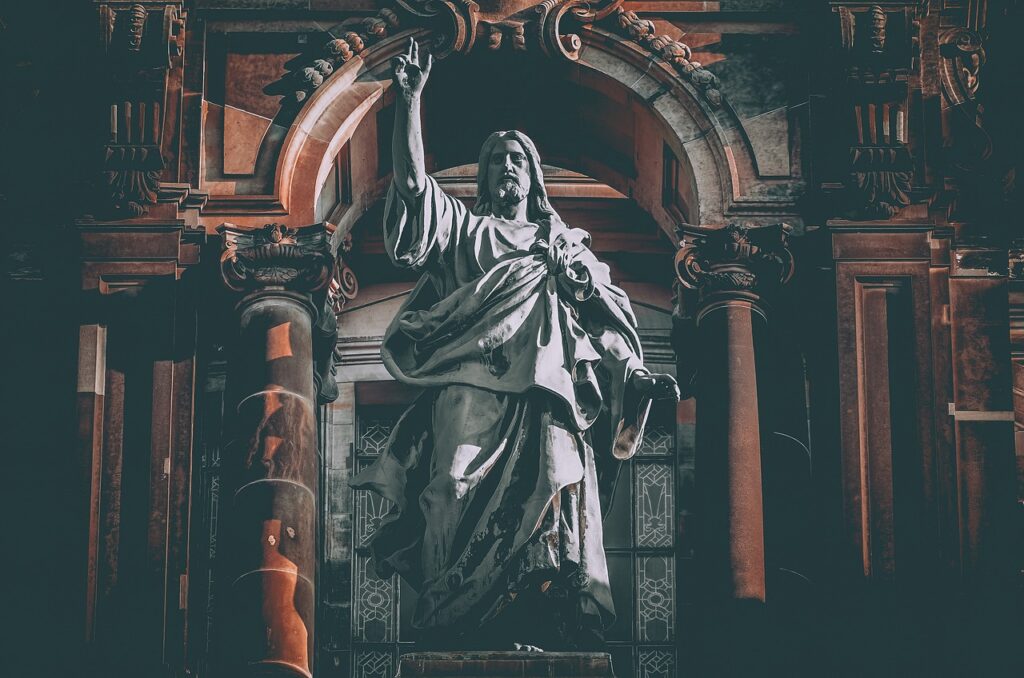
The Symbolism of Christmas
Jesus as the Light of the World
One of the central themes of Christmas is the symbolism of Jesus as the Light of the World. The Gospel of John describes Jesus as the light that shines in the darkness, bringing hope, truth, and salvation to all who believe in Him. The lighting of candles and the display of Christmas lights are physical representations of this spiritual truth, reminding us of the joy and hope that Jesus brought into the world.
The Star of Bethlehem
The star of Bethlehem played a crucial role in guiding the wise men to the newborn Jesus. This shining star is often seen as a symbol of hope, signifying the divine guidance and revelation that led the wise men to the Messiah. It serves as a reminder that Jesus came to bring light to those who are lost and to lead them on the path of salvation.
Gifts and Offerings
The tradition of giving gifts during Christmas is rooted in the biblical account of the wise men presenting their offerings to Jesus. These gifts were not only a gesture of honor and respect for the newborn King but also an acknowledgment of His divine nature. Today, the act of giving gifts is seen as a reflection of God’s ultimate gift to humanity – the gift of His Son, Jesus Christ.
Christmas Traditions
Christmas Trees
One of the most recognizable symbols of Christmas is the Christmas tree. Its origins can be traced back to ancient pagan traditions, where evergreen trees were seen as symbols of fertility and eternal life. The early Christians adopted this practice, transforming it into a symbol of the everlasting life found in Jesus. The decoration of the tree with lights and ornaments represents the joy and celebration of Jesus’ birth.
Mistletoe and Holly
Mistletoe and holly are often associated with Christmas decorations, but their significance predates Christianity. In ancient pagan rituals, mistletoe and holly were believed to possess special powers and were used to ward off evil spirits during the winter season. Christians later incorporated these traditions into their Christmas celebrations, adding their own meanings. Mistletoe became a symbol of love and goodwill, and holly represented eternal life through Jesus.
Candlelight Services
Candlelight services have become a beloved tradition in many Christian churches during the Christmas season. These services are often held on Christmas Eve, and participants hold lit candles as a symbol of Jesus, the light of the world. The candlelight represents the hope and peace that Jesus brought into the world, and it serves as a reminder to let His light shine in our lives and to be a beacon of hope to others.

The True Meaning of Christmas
Love and Compassion
At its core, Christmas is a celebration of love and compassion. The birth of Jesus demonstrates God’s immense love for humanity, as He sent His Son to save us from sin and bring us into a relationship with Him. As we celebrate Christmas, we are reminded of the importance of showing love and compassion to others, just as Jesus did during His time on earth.
The Importance of Giving
Christmas is also a time to remember the importance of giving. The act of giving gifts to others is a reflection of the ultimate gift that God gave to us – His Son. Through our generosity, we can bring joy and happiness to those around us and make a positive difference in their lives. Christmas reminds us to be selfless and to seek opportunities to give and bless others.
Remembering Jesus’ Sacrifice
While Christmas is a joyful occasion, it also serves as a reminder of Jesus’ sacrificial death on the cross. Jesus was born to fulfill His mission of redemption, and His birth ultimately led to His crucifixion and resurrection. As we celebrate Christmas, it is essential to reflect on the significance of Jesus’ sacrifice and the eternal hope that it offers to all who believe in Him.
Criticism of Christmas
Commercialization and Materialism
One common criticism of Christmas is its commercialization and emphasis on material possessions. In our consumer-driven society, it is easy to get caught up in the frenzy of shopping and gift-giving, losing sight of the true meaning of the season. It is crucial to remember that Christmas is not about the number of presents under the tree but about the love and sacrifice that Jesus demonstrated.
Pagan Influences
Another criticism of Christmas is its association with pagan traditions and practices. Some argue that the incorporation of these customs into Christian celebrations compromises the purity of the faith. However, many Christians see the adaptation of pagan customs as a way to redeem them and transform them into expressions of faith and celebration of Jesus’ birth.
Religious Differences
Christmas is primarily celebrated by Christians worldwide, but it can create tensions among those of different religious beliefs or those who do not observe the holiday. Critics argue that the overwhelming presence of Christmas in society can be exclusionary and insensitive to those who do not share the same faith or traditions. It is important to be respectful of others’ beliefs while still joyfully celebrating the significance of Christmas within the Christian faith.
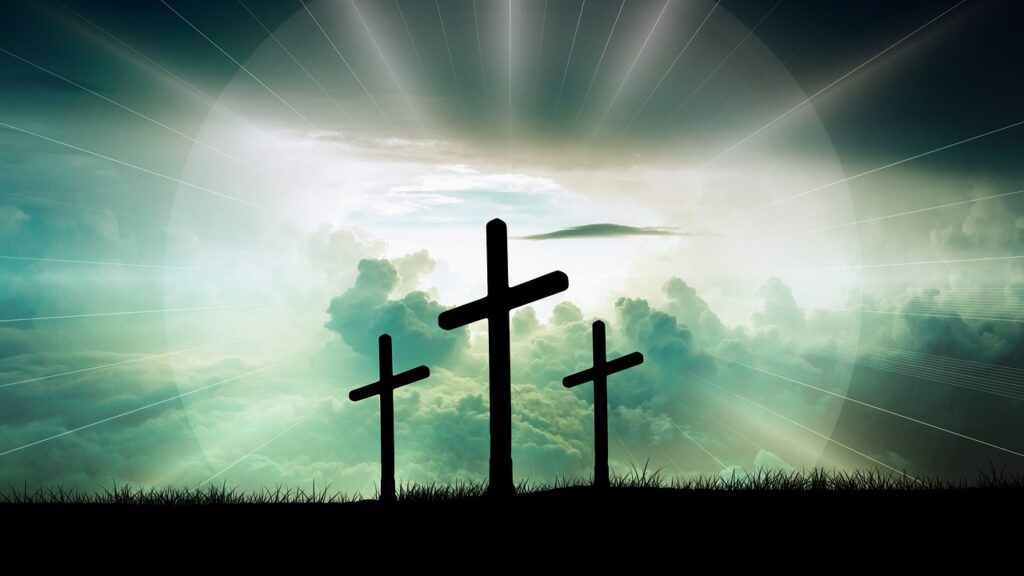
Christmas in the New Testament
The Announcement of John the Baptist’s Birth
Before the birth of Jesus, the Gospel of Luke tells us that the angel Gabriel appeared to a priest named Zechariah and announced that his wife, Elizabeth, would bear a son named John. John the Baptist played a crucial role in preparing the way for Jesus, and his birth was a sign of the fulfillment of God’s promises.
The Birth of Jesus in Bethlehem
The most well-known account of Christmas is found in the Gospels of Matthew and Luke. Both accounts tell of the miraculous birth of Jesus in Bethlehem, fulfilling the Old Testament prophecies and establishing Jesus as the long-awaited Messiah. The birth of Jesus in humble circumstances, surrounded by Mary, Joseph, and shepherds, demonstrates God’s humility and love for all humanity.
The Visit of the Shepherds
The shepherds were common, ordinary people who were the first to receive the news of Jesus’ birth. They were visited by angels who proclaimed the good news of great joy. This visitation of the shepherds signifies that Jesus came to bring hope and salvation not only to the powerful and elite but to all people, regardless of their social status.
Biblical References to Christmas
Isaiah’s Prophecy
The prophecies of the Old Testament play a crucial role in understanding the significance of Christmas. The prophet Isaiah foretold the birth of a child who would be called Immanuel, meaning “God with us.” This prophecy, found in Isaiah 7:14, served as a promise and a sign of the coming Messiah, who would bring salvation and establish His kingdom.
The Genealogy of Jesus
The genealogies provided in the Gospels of Matthew and Luke trace Jesus’ lineage back to King David and even to Adam. These genealogies, while often overlooked, are essential in establishing Jesus’ rightful claim to the Messianic title and fulfill the Old Testament prophecies concerning the lineage of the Messiah.
The Birth Narratives in Matthew and Luke
The Gospels of Matthew and Luke contain detailed accounts of the birth of Jesus. These narratives provide a wealth of information about the circumstances surrounding Jesus’ birth, including the angels’ messages, the visit of the wise men, and the adoration of the shepherds. They serve as a reminder of the historical reality of Jesus’ birth, bringing the biblical account to life.
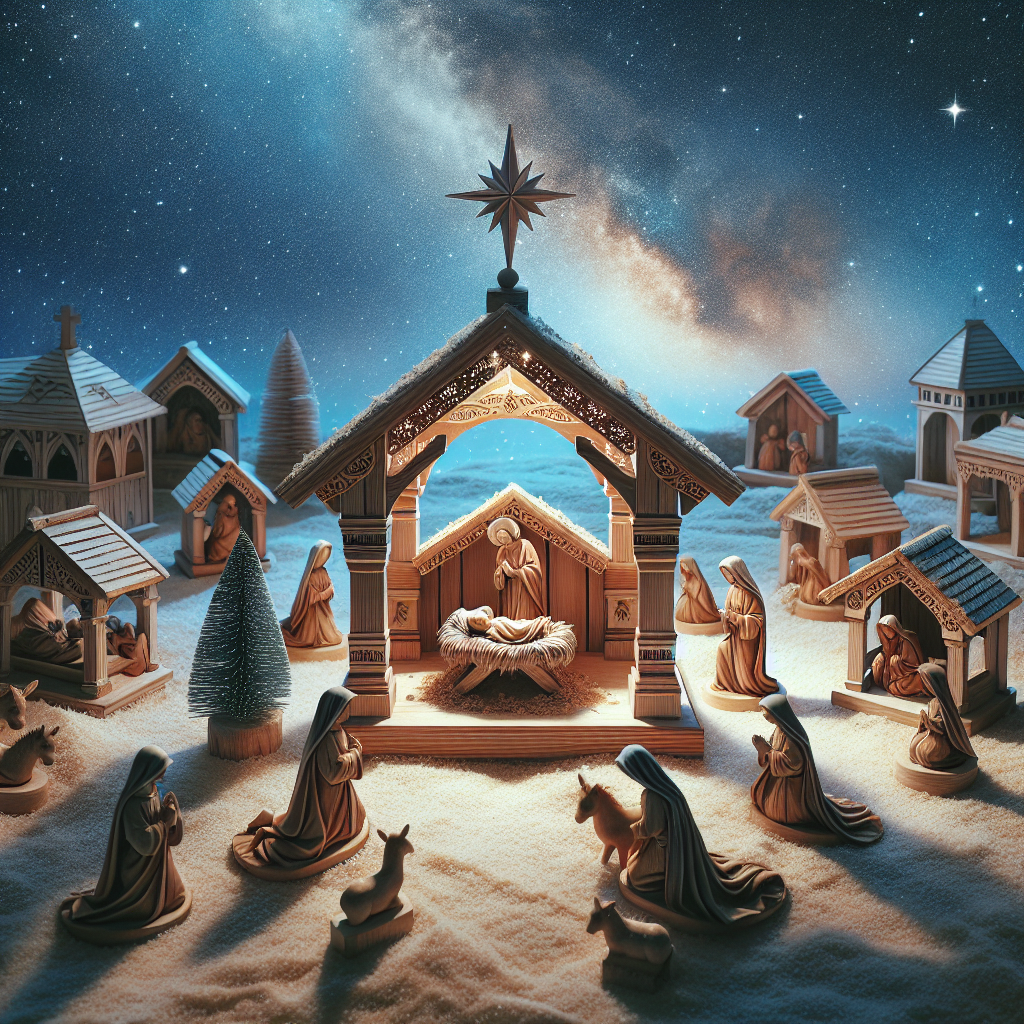
Christian Perspectives on Christmas
Different Interpretations
Within the Christian faith, there are different interpretations of how Christmas should be celebrated. Some emphasize the importance of traditional practices and liturgical observances, while others prioritize a more simplified and personal approach. Regardless of the approach, the common thread among Christians is the recognition and celebration of Jesus’ birth and the desire to convey His love to others.
Balancing Tradition and Scripture
One challenge for Christians is to strike a balance between cultural traditions and the teachings of Scripture. While cultural traditions can be meaningful and facilitate a sense of community, they should never overshadow or contradict the core message of Christmas – the birth of Jesus Christ. Christians are called to prioritize the truth found in the Bible and ensure that their celebrations reflect the biblical significance of Christmas.
Maintaining Focus on Jesus
It is all too easy to get caught up in the festivities and distractions of the Christmas season and lose sight of the true meaning. Christians are encouraged to keep their focus on Jesus as the center of their celebrations. By continually reminding ourselves of the miraculous birth of Jesus and the eternal impact it had, we can keep the true spirit of Christmas alive in our hearts and lives.
Conclusion
Christmas is a holiday celebrated by millions around the world, both religious and secular alike. It has a fascinating origin that combines ancient pagan traditions with the Christian adaptation of celebrating the birth of Jesus Christ. As Christians, we recognize the importance of remembering the true meaning of Christmas: the love, compassion, and sacrifice demonstrated through the birth of our Savior. While there may be criticisms and debates surrounding the holiday, it is ultimately a time of joy, hope, and reflection for believers. As we celebrate Christmas, let us remember to focus on Jesus and let His light shine brightly in our lives and communities.
